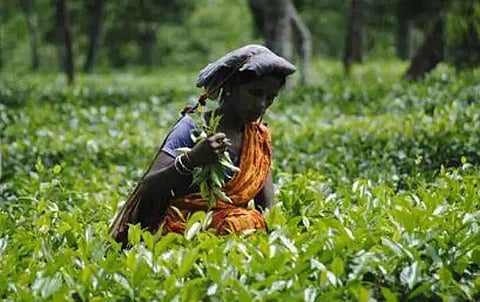
- Home
- Live Blog
- Breaking News
- Top Headlines
- Cities
- NE News
- Sentinel Media
- Sports
- Education
- Jobs

NEW DELHI: To provide a road map for a self-sustainable tea industry going forward, the Indian Tea Association (ITA) has suggested the Centre for a minimum floor price on the beverage -- especially on made tea and green leaf.
The tea industry has presented the initial paper citing their proposal to Union Commerce Minister Piyush Goyal.
"This proposal does not require any financial outlay from the state or Central governments and ensures a self-sustainable model for all producers, both small and large," ITA Chairman Vivek Goenka said at its 138th Annual General Meeting held on Wednesday via virtual mode. For guidance and chalking out a strategy, the association has engaged the global consultancy firm Ernst & Young and leading law firm Khaitan and Co, Goenka said.
"We are currently engaging with other stakeholders and will be finalizing this proposal soon before taking it to the Ministry of Commerce and the state governments. I sincerely feel that having a Minimum Floor Price will be extremely beneficial for the entire industry," he added.
Besides, for the tea industry to flourish, export volumes need to be raised to 300-350 million kg, which will also maintain the demand-supply equilibrium.
At present, the country exports around 200-250 million kg of tea on an average annually.
"This (low exports) results in a yearly surplus of around 75 million kg which is coming into the system. Unless this surplus can be addressed the surplus stock will continue to pile up and ultimately lead to an oversupply situation thereby resulting in lower price," Goenka said.
The Indian tea industry has been stuck in a perfect storm for the past several years on concerns such as uncompetitive prices, lack of quality crops, rising labour costs as well as subdued export demand.
Tea production is a high-cost business, with 60-65 per cent of the input costs going into labour wages. The rest goes into coal, gas, fertiliser and other machinery.
The Covid pandemic further exacerbated the industry's prospects. Also, some other major tea producing countries are giving Indian tea producers tough competition, especially on the price front.
India produces on an average 1,380 million kg of tea annually and is one of the top growers of the commodity in the world.
The country's tea sector employs around 1.2 million workers and contributes 23 per cent to the global output.
Notably, the Tea Board of India had recently proposed to bring in a new Act by replacing the current Tea Act, 1953 for the betterment of the tea industry. It is currently in the stakeholders' consultation stage. (IANS)
Also watch: